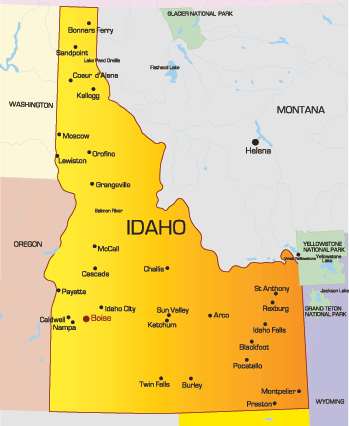For more on the situation in Nepal, I recommend @MelianPretext@lemmygrad.ml’s comment here.
Following a “anti-corruption” protest movement spurred by a social media ban (but with much deeper roots) in which dozens of protestors were killed by state forces, the government of KP Oli has been ousted, and an interim leader is currently in power as the country prepares for elections. Notably, events have been characterized as “Gen Z protests”, and this leader was decided (at least partially) by a Discord vote. When a non-western government rapidly falls, it’s wise to at least glance in the direction of the United States, and there are almost certainly elements of color revolution here. But, as always, it’s more complicated than simple regime change - Nepal is a deeply troubled economy even as developing countries go.
-
Despite winning 75% of the seats in parliament in 2017, the various communist parties have failed to unify towards forming a common agenda and solving the problems of the people. When the nominally united communist party split in 2021, infighting and opportunism eventually brought on the rightist politicians we see today.
-
The Nepalese economy is not successful. Disasters are slow to be ameliorated, education and healthcare is underfunded, and poverty is fairly rampant. There have been significant developments made by the communist parties, such as electrification programs and some poverty reduction, but it has been insufficient.
-
The petty bourgeois usually come from oppressed Hindu castes, and are frustrated by the domination of upper castes, and so are inspired by India’s BJP. They essentially want a return to monarchy, under the guise of anti-corruption, and despite their relatively small numbers, are powerfully organized.
-
Of the countries that aren’t tiny islands, Nepal has the highest per capita rate of work migration, due to insufficient employment in Nepal. The jobs that Nepalese citizens receive overseas range from unpleasant to unbearable in both labour and wages, and this has generated rightful suspicion that the government cares more about foreign direct investors than their own citizens overseas.
-
The government of KP Oli was close to the United States, and India’s Modi has promoted the BJP in Nepal. Both countries have sought to exert influence over Nepal, though Prashad speculates that, if there is indeed a foreign mastermind at work, India is more likely to be the culprit behind these recent protests, in a gambit to use the chaos to promote/install a far right monarchist government.
I agree with Prashad that it seems unlikely that mere electoral changes will result in anything terribly productive, though whatever government emerges will inevitably hoist the banner of anti-corruption to try and legitimize themselves. We have seen the same breakdown of electoralism as a meaningful pathway to solve national problems all across the world, from the superpowers to the poorest states. Until a rupture occurs, greater surveillance, policing, and repression seems guaranteed.
Last week’s thread is here.
The Imperialism Reading Group is here.
Please check out the RedAtlas!
The bulletins site is here. Currently not used.
The RSS feed is here. Also currently not used.
Israel's Genocide of Palestine
Sources on the fighting in Palestine against the temporary Zionist entity. In general, CW for footage of battles, explosions, dead people, and so on:
UNRWA reports on Israel’s destruction and siege of Gaza and the West Bank.
English-language Palestinian Marxist-Leninist twitter account. Alt here.
English-language twitter account that collates news.
Arab-language twitter account with videos and images of fighting.
English-language (with some Arab retweets) Twitter account based in Lebanon. - Telegram is @IbnRiad.
English-language Palestinian Twitter account which reports on news from the Resistance Axis. - Telegram is @EyesOnSouth.
English-language Twitter account in the same group as the previous two. - Telegram here.
English-language PalestineResist telegram channel.
More telegram channels here for those interested.
Russia-Ukraine Conflict
Examples of Ukrainian Nazis and fascists
Examples of racism/euro-centrism during the Russia-Ukraine conflict
Sources:
Defense Politics Asia’s youtube channel and their map. Their youtube channel has substantially diminished in quality but the map is still useful.
Moon of Alabama, which tends to have interesting analysis. Avoid the comment section.
Understanding War and the Saker: reactionary sources that have occasional insights on the war.
Alexander Mercouris, who does daily videos on the conflict. While he is a reactionary and surrounds himself with likeminded people, his daily update videos are relatively brainworm-free and good if you don’t want to follow Russian telegram channels to get news. He also co-hosts The Duran, which is more explicitly conservative, racist, sexist, transphobic, anti-communist, etc when guests are invited on, but is just about tolerable when it’s just the two of them if you want a little more analysis.
Simplicius, who publishes on Substack. Like others, his political analysis should be soundly ignored, but his knowledge of weaponry and military strategy is generally quite good.
On the ground: Patrick Lancaster, an independent and very good journalist reporting in the warzone on the separatists’ side.
Unedited videos of Russian/Ukrainian press conferences and speeches.
Pro-Russian Telegram Channels:
Again, CW for anti-LGBT and racist, sexist, etc speech, as well as combat footage.
https://t.me/aleksandr_skif ~ DPR’s former Defense Minister and Colonel in the DPR’s forces. Russian language.
https://t.me/Slavyangrad ~ A few different pro-Russian people gather frequent content for this channel (~100 posts per day), some socialist, but all socially reactionary. If you can only tolerate using one Russian telegram channel, I would recommend this one.
https://t.me/s/levigodman ~ Does daily update posts.
https://t.me/patricklancasternewstoday ~ Patrick Lancaster’s telegram channel.
https://t.me/gonzowarr ~ A big Russian commentator.
https://t.me/rybar ~ One of, if not the, biggest Russian telegram channels focussing on the war out there. Actually quite balanced, maybe even pessimistic about Russia. Produces interesting and useful maps.
https://t.me/epoddubny ~ Russian language.
https://t.me/boris_rozhin ~ Russian language.
https://t.me/mod_russia_en ~ Russian Ministry of Defense. Does daily, if rather bland updates on the number of Ukrainians killed, etc. The figures appear to be approximately accurate; if you want, reduce all numbers by 25% as a ‘propaganda tax’, if you don’t believe them. Does not cover everything, for obvious reasons, and virtually never details Russian losses.
https://t.me/UkraineHumanRightsAbuses ~ Pro-Russian, documents abuses that Ukraine commits.
Pro-Ukraine Telegram Channels:
Almost every Western media outlet.
https://discord.gg/projectowl ~ Pro-Ukrainian OSINT Discord.
https://t.me/ice_inii ~ Alleged Ukrainian account with a rather cynical take on the entire thing.
This is regarding the seemingly lynched black man in Mississippi:

Tyler Robinson is ex-Mormon. That really explains everything to me about the motive and character of this assassination. The family is Mormon and active in the local church still, and the rat father is LDS.
For those who did not grow up in the LDS church, it is fairly all-consuming. You spend 3 hours on Sunday at Church, ~2 hour each Wednesday at Youth Group, ~5 hours per week at Seminary before school, ~2 hours cleaning the church once a month or so, time doing service, time doing your assigned roles in the church as it’s all unpaid lay clergy. You hang out with Mormons all day every day. You have a certain certainty as you have the “gift of the holy ghost” which is basically deputized emotions given prophetic power, what you feel is always right. There is huge emphasis on the church being true, the only true church, with very specific rites and rituals that are required. This instills them a deep idealistic and romantic outlook, symbolic things are very real and materialism is a thing of the world. There are literal truths about existence that they have access to, the earthly world was one realm of many and they would eventually become Gods.
They are also very much into gun culture and vigilante non-government violence, as seen by the dudes who occupied the Malheur refuge in Oregon and the entire hundreds year history of Utah and their clashes with the US government, the native peoples they occupied and even just non-Mormon white settlers (Look up Mountain Meadow Massacre for starts, that’s the tip of the iceberg).
It’s not that they’re “rebellious”. They are very obsequious and subservient to authority. They just believe the authority of the world is mostly fake, or secondary, to the authority of the church and the prophet and Mormon material interests as a whole. Remember, Mormons are very rich and powerful and connected in Utah especially. Remember, the entire goal of their stated theology is to become Gods by accruing wives and children and obeying authority until they are rewarded.
When you first become ex-Mormon and leave the church, it doesn’t come off all at once. For some, they only partially do it and become Jack Mormons, drinking and sinning and doing drugs but maybe attending church once in a while when your active Mormon friends come pick you up. But those who break more radically are often pissed off and angry at the lies they’ve been fed their whole lives, justifiably so. However, they still feel that there is an absolute truth, have a very idealistic and romantic outlook and very violent outlook that shirks popular opinion and widespread culture as shallow and material.
I remember when I went through the nu-Atheist phase of my early ex-Mormondom, I consumed hours of atheist “philosophy” on YouTube and forums and chats. I was in college and also taking philosophy 101 classes and my mind was being blown. I was moving to the left, very pissed and rebellious against the Bush-era conservatism of my father and family. I could see if I was familiar in hunting and handling guns I might just do something stupid out of the “principle” of the thing, if caught in a weird mood. This is like radliberalism times one hundred. Mormons are the most American religion, and an ex-Mormon is the most American radical.
The Israeli occupation of Gaza city, “Operation Iron Fist” has just begun. An initial division of the IDF/IOF have entered Gaza city, with close air support being provided by aircraft continuously landing and taking off according to Israel. Yes, Israel are actually planning to invade and occupy the entirety of the Gaza strip, including Gaza city, which they have not done so yet. They have now pulled the trigger on this plan, after much speculation.
There was some intense bombing a few hours ago intended as a decapitation strike, israel has one play. May the land swallow them up, may their tanks be their tombs
Ignore the maps Israel and the US put out there: in 2 years, Israel hasn’t been able to hold territory in any meaningful sense. They can bomb, they can kill civilians, but they can’t actually hold territory. As Jon Elmer has mentioned, the IOF tried to take Gaza City before - with tremendous firepower - and failed miserably. I don’t see why things would go any better for them now.
 I really hope you’re right
I really hope you’re rightThey’re probably assuming the genocide has worn down the population enough so they will either submit or die. I hope you’re right
May many colonizers meet the fate they deserve there
Death to every last genocider.
May the entity crumble and Palestine be free from these fascists.
Operation Iron Fist
"Schwerer Gustav was a German 80-centimetre (31.5 in) railway gun…Hitler referred to the impractical gun as “meine eiserne faust (my iron fist).”
Classical I⚡⚡ rael moment
They literally just locked his ass up because they shut down the abusive health centre where he was previously being “cared for”. I’m surprised they didn’t try and use
aktion T4MAID on him.shit like this is why I’m going undiagnosed
This is in Kamala’s new book, I could swear that she did say exactly this multiple times…???

[edit] IIRC, she was asked on the View what the biggest difference between a Biden and Harris admin would be and Kamala said that she’d have at least one Republican in her cabinet!
There was apparently a meeting of 250 US lawmakers in israel today. I have yet to be able to find a list of the names though. If anyone finds it, I would be greatly appreciative
Spain pulls the plug on $823 million Israeli-backed rocket launcher deal
Spain appears to have cancelled a €697 million ($823 million) contract for the acquisition of the High Mobility Rocket Launcher System (SILAM), developed from Israeli firm Elbit Systems’ Precise and Universal Rocket Launcher (PLUS) design.
more
A cancellation notice, published by Madrid’s procurement agency last week, does not provide an explanation for the move, but it sits in line with Spanish Prime Minister Pedro Sánchez’s decision to accelerate approval of a Royal Decree Law, consolidating an existing arms embargo against Jerusalem. The move is one of nine actions the Spanish government said it plans to take to help “stop the genocide in Gaza, pursue its perpetrators, and support the Palestinian population.” Once adopted, the Decree will establish “a legal and permanent ban on the purchase and sale of weapons, ammunition, and military equipment” to Israel, Spain’s central government announced last week. The AFP previously reported the cancelation of the SILAM deal.
The Spanish Ministry of Defense referred Breaking Defense to “recent comments” on the matter and other cancelled weapon buys of Israeli origin from Spanish Minister of Defense Margarita Robles. “We have made it very clear that this technological material, which was being supplied to Spain by Israeli companies, will be replaced by Spanish industry,” she said. “Additional measures” announced last week by Madrid in response to the Gaza conflict include a ban on any aircraft transiting Spanish airspace to transport defense equipment to Israel. Similarly, ships carrying fuel to the Israeli armed forces are prohibited from entering Spanish ports.
Israeli Foreign Minister Gideon Saar, in response, accused Sánchez of antisemitism and barred two senior Spanish officials from entering Israel.
The SILAM contract was originally awarded in 2023 to a joint venture between Spanish companies Escribano Mechanical & Engineering and Rheinmetall Expal Munitions, a subsidiary of the German giant. According to the Spanish Ministry of Defense (MoD), Expal, Escribano and Spanish technology firm GMV, displayed the SILAM solution at the FEINDEF trade show in 2023, alongside Elbit, prior to contract award. The weapon system was put forward for acquisition in order to address an “absence of artillery capability that arose a decade ago when the [Spanish Army’s] Teruel system was decommissioned,” noted the MoD at the time [PDF]. Elbit Systems company literature states that PULS “can fire a variety of ammunition types to various ranges from the same position, to ranges of up to 300km.” The system can fire munitions including Accular and Predator Hawk rockets. PULS European customers include Germany, Denmark and The Netherlands. Earlier this year, Madrid cancelled a €285 million contract for the purchase of 168 launch units and 1,680 Spike LR2 anti-tank missiles produced by Israel’s Rafael. Elbit and Rafael did not immediately respond to a request for comment at the time of publication. A United Nations independent commission announced today that it has found that Israel “is responsible for the commission of genocide in Gaza” — an accusation Jerusalem has vehemently denied as it carries out military operations in Gaza that it says target Hamas fighters.
Trump’s polling is fucking disastrous right now.
How bad is it? Even white people and rich people are negative.
Overall: -13
By race
spoiler
Hispanics: -30
Black Americans: -73
Hwites: -5
By age
spoiler
18-29: -26
30-44: -25
45-64: -9
65+: -15
By income:
spoiler
<50k: -24
50-100k: -13
100k+: -4
Also there’s a bunch of questions in there about political violence and Charlie Kirk. One interesting tidbit is that Harris voters are 15% more likely to say political violence is sometimes justified than Trump voters. Another interesting one is if people feel like we are at a “significant turning point in American politics”, and 67% of respondents said yes. Whites were more likely than Blacks or Hispanics to say that, but everyone is in the majority.
There’s also a bunch of issue-specific polling on Trump’s presidency. Jobs/economy, inflation/prices, immigration, civil rights, crime, and guns. He’s negative on every single issue. Some by small margins (immigration, crime) and some by huge margins (economy, inflation). 60% of people disapprove of his handling of Epstein.
Despite all this, the Democrats still have worse approval than the Republicans! 60% of respondents describe them as ineffective compared to 35% who say the same for Republicans. The two party system is creaky and weak right now.
deleted by creator






I know in my area they seem to be growing every week, which is interesting. But I heard they’re a lot less of a thing in not major cities.

Whatever you can say about Democrats and republicans, the republicans definitely wield power more effectively - so the poll results make sense.
Democrats staunchly refuse to change anything and yield all power to do so.
Democrats are very good at what they do. They accomplish exactly what they want, which is nothing. It only seems like they are incompetent because people take them at face value that they are trying to achieve progressive reforms, when in reality that is not even a concern for them
Another interesting one is if people feel like we are at a “significant turning point in American politics”, and 67% of respondents said yes. Whites were more likely than Blacks or Hispanics to say that, but everyone is in the majority.
Living through “First time?” is kinda funny.
Trump will just post ICE agents outside voting locations in districts that have a lot of minorities and drive down participation. The Supreme Court just declared they can grab people based on skin color. Not many people will want to deal with that on behalf of a shit political party.
One interesting tidbit is that Harris voters are 15% more likely to say political violence is sometimes justified than Trump voters.
To them, it’s only violence if it’s against

deleted by creator
significant turning point (good) or (bad), it’s a nothing answer. of course it’s a turning point, mfer sanctioning half the world and dunking wto in dustbin of history
He’s still +74% among people who voted for him in '24; the echo chamber is still going strong.
Libs will ignore how faithful the adherents are
One interesting tidbit is that Harris voters are 15% more likely to say political violence is sometimes justified than Trump voters
If you subscribe to the belief that the root of conservatism is fear then you must also subscribe to the belief that conservatives will be the first to get scared when the violence begins.
Hasan flashed a poll yesterday (too quick for me to jot down the source) that asked people if they preferred democrats like Schumer and Pelosi or Mamdani and AOC. The overall result was +3 for the progressive dems. That’s significant because IIRC it was a poll of all across the spectrum, and conventional wisdom says that the more centrists dems are preferred in that scenario because it includes a lot of conservatives.
How the dems could right the ship and achieve huge electoral successes is staring them in the face, and they refuse to acknowledge it.
(Of course, I am not saying progressive dem politicians are good, I am just highlighting that people are fed up with the status quo and the option of “let’s do more free markets, neoliberalism, and austerity is NOT popular at all. I think this highlights that there is an opening for us to develop class consciousness to a degree not seen before in recent memory).
Damn. It’s good we live in a democracy.

lol and this is with a good market, imagine how bad his numbers will get if stocks take a dive
“good” market
Gen X holding us all down SMDH
Has me wondering if GenX is also as lead poisoned as boomers? They certainly have the sociopathic symptoms down, even if they lack the pigheaded lead-stare aggression common to boomers
As a (adult and thankfully NC with one of them) child of GenXers, I think it’s the lead, combined with seeing the height of US/western triumphalism and the “end of history” bullshit, and not having the constant devastation of 2008 onwards define their formative years (childhood all the way up to early adulthood).
Boomers are cursed, but at least then, I feel the lines were drawn, across the map, across class interests, maybe. Granted, I’m coming from an immigrant family (parents came over when I was 2), but my parents grew up seeing this triumphalism and perhaps the high-point of western whitewashing and erasure of history, and not the worst of the ongoing atrocities of just how the western order was made and sustained. On the other hand, even my paternal grandparents who are deeply religiously colonized know what it is like to have been a colonial subject. They know what it was like to face US-destabilization and massacres and abuses of their community and broader ethnic kin, and colonial “containment” wars with the US slaughtering millions of their neighbors. In these senses (I suspect also racially, etc) there was a understanding that was- not lost, but diminished, intentionally paved over with feel-good nonsense like as if all the horrors of the west never existed, or were in some distant past, as the west portrayed itself as the gatekeepers and origin of all social progress and development. And genX was raised seeing the worst of it.
Gen Xers seem to be the most entitled generation. Here, they are always up in arms about how everything is fucking up their parking spots
the actual leaded gasoline effects hit gen x the hardest, boomers were hit too but they were already past childhood
That’s genuinely terrifying, when those GenXers hit their golden years and their bones start to soften, the stored lead will begin to leech out of their bones and hit their nervous systems a second time
Is lead poisoning a congenital disorder? Perhaps they inherited it from their parents
Only if there’s severe exposure during pregnancy, lead can cross the placenta, but lead doesn’t just hang around all over the body, in most cases once it’s done its damage it binds with the calcium in the bones and accumulates there semi-harmlessly for most of that person’s life, until old age when the bones become porous and the lead is released a second time back into the rest of the body
Most GenXers probably weren’t poisoned during pregnancy (unless their boomer mother was exposed all the time) but instead during childhood
they just got their free house - from their grandparents, the happiest day of any homeowner, which they can rent to future generation holding us down.
It’s because DOGE fucked with boomer’s social security.


queer harmer tanking it like a champ 💪burying labour for a generation or hopefully longer.
Who would the turgidity of labour elect as their face next? wall streeting?
Seeing this as well as the poor trump numbers in the subthread below reinforces my guess that governments in the Democratic West ™ are increasingly unlikely to maintain a mandate for more than 1 election cycle. In neoliberal countries like the US and its vassals, all major parties are committed to neoliberalism, but neoliberalism can’t address the material challenges that affect people’s lives. Since the makeup or politics of major parties can’t change and can’t really address issues, the electorate rapidly comes to dislike the new government and drives a switch in the next election. In the past these structural challenges were present but were more easily papered over.
I’m thinking of the US, UK, Canada and France specifically in this context, all countries that have seen elections of new governments followed by immediately plummeting popularity of new government.
Seeing this as well as the poor trump numbers in the subthread below reinforces my guess that governments in the Democratic West ™ are increasingly unlikely to maintain a mandate for more than 1 election cycle.
Eventually they will stop having a mandate for even a single cycle. That’s when things get interesting.
France has decent odds of electing Melenchon, who would probably be immune to this by virtue of actually doing good things
Australia is an odd outlier here. Labour convincingly won a first term and then did better next time.
People actually like labour but that mostly might be because the last 20 years have been a cavalcade of liberal party failsons and fuckups vs Albo who’s got dad energy. He’s just some guy
Labour were extremely lucky to win the election in the first place, mostly due to the first past the post system.
i half expect that if you poll about Putin in Ukraine you’ll get better approval ratings than kid starver’s
Damn. It’s good we live in a democracy.




Man, why it is always chuds posing as leftists and dropping it as soon as they won election. I mean we all know the reason but I would like a chud party declaring total sanction on israhell
Damn that looks rough, have they tried running as the sensible fascists again?
Who would the turgidity of labour elect as their face next? wall streeting?
There are rumours that the soft ‘left’ (essentially Ed Milibandish types) under Andy Burnham may attempt a coup which I somewhat doubt they have the sauce for, but I guess we’ll see. Obviously the Labour Party is irredeemable and Andy Burnham is not coming to save us (lol) but I’d be lying if I said it wouldn’t be a little satisfying to see Starmer ousted by the guys he allegedly had a temper tantrum at when they suggested slightly more progressive climate policy lmao. A fittingly Thatcher like end too, who also ultimately got betrayed within her own party by all the nerdy underlings she yelled at too much.
Of course there’s a reasonable chance that the party circles the wagons against this and we end up with some equally unpopular melt like Streeting or Lammy.

pls mr. china don’t lib out, pls (dogshit source, so maybe 2hrs later some updates will arrive)
4 Israeli soldiers got smoked in Rafah



 source
sourceSenate Democrats voted unanimously to create a “National Day of Remembrance” for Charlie Kirk, fearing that not voting for the resolution would be a “messaging coup” for Republicans.
https://www.axios.com/2025/09/18/charlie-kirk-national-day-remembrance-senate
Put a fork in it, we’re done here lmao
Trump says he bombed another Venezuelan vessel on international waters.
Most cocaine shipments leave from Colombia, FYI.
The CIA doesn’t want to start a war with their own dealer
Employees*
After a fun weekend its back to our regularly scheduled war crimes
Feels like they’re just trying to provoke a Venezuelan response
And if they don’t provoke a response, they instead produce a chilling effect on Venezuelan access to the sea. Fishermen won’t go out and get food for their people for fear of getting obliterated without warning by the US. It’s exactly like Zionist policy towards Gaza’s coast.
Deepstate escalation of pressure or boomerocacy basing policy on scaremongering they saw on fox news?






























